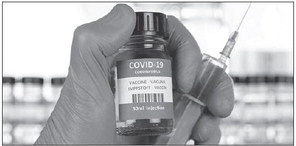Questions about COVID-19 vaccines


By CJ Blomquist
OptumCare
It’s exciting to see vaccine efforts underway, as it’s a major step forward in managing the COVID-19 pandemic. As you consider getting a vaccine, you probably have some questions. Here are answers to some of the more common questions.
I have a health condition. Is this vaccine safe for me?
Yes, clinical trials of the vaccines included people with chronic conditions such as diabetes and heart disease. The vaccines were as effective for them as for people without such conditions, according to the Centers for Disease Control and Prevention (CDC). This is important because people who have chronic conditions and people older than 65 are at greater risk for severe illnesses with COVID-19. But your first stop should be with your primarycare doctor, who knows your health history and can help you make the right decision.
What happens if I have an allergic reaction to the vaccine?
There have been some severe allergic reactions, but these are rare. If you have allergies to polysorbate or polyethylene glycol, the CDC recommends you do NOT get the vaccine. If you have any other allergies, be sure to tell the doctor or nurse before you get the first dose. Vaccination sites are prepared to monitor and treat allergic reactions, should they occur. If you do have a severe reaction, it is not recommended that you get the second dose.
After administering the shot, they’ll give you information on what to watch out for and what to do in case of you experience any side effects or allergic reactions. Your physician should also be available to answer any questions.
How do I know I will get my second dose?
The vaccine is delivered in two doses, with the second about three to four weeks after the first. The vaccine distribution is set up to ensure locations get both doses in time.
I have some sniffles. Is it safe to get the vaccine?
COVID symptoms can be similar to other respiratory illnesses, such as a cold or allergies, so be sure to check with your doctor first.
I haven’t gotten my flu shot yet. Should I still do that?
It’s been a mild flu season so far, but don’t let that fool you! There have been stay-at-home orders and fewer people congregating, limiting that virus’ spread. But the flu can show up unexpectedly. If you are getting your COVID-19 vaccine, you’ll have to wait on your flu shot. The CDC recommends giving yourself 14 days between the first dose and the flu shot. As always, you should check with your doctor first.
I already had COVID-19. Do I still need to get vaccinated?
The CDC recommends that persons who have fully recovered from having COVID be vaccinated. If you received treatment for COVID with convalescent serum or monoclonal antibodies, it’s recommended you wait at least 90 days before getting the vaccine. And, of courses, check with your doctor first.
I can’t get the vaccine right now. What can I do to be safe?
You’ve heard it before, but it’s worth repeating: Wear a face mask in public, keep distance from others, and wash your hands often. Avoid any crowded places or areas with poor air circulation. Remember, these guidelines should continue even after vaccination. We cannot let our guards down.
As mentioned several times, check in with your doctor before getting the vaccine. Your primarycare physician can help answer questions specific to your health needs, and together, you can come up with the best plan for you.





